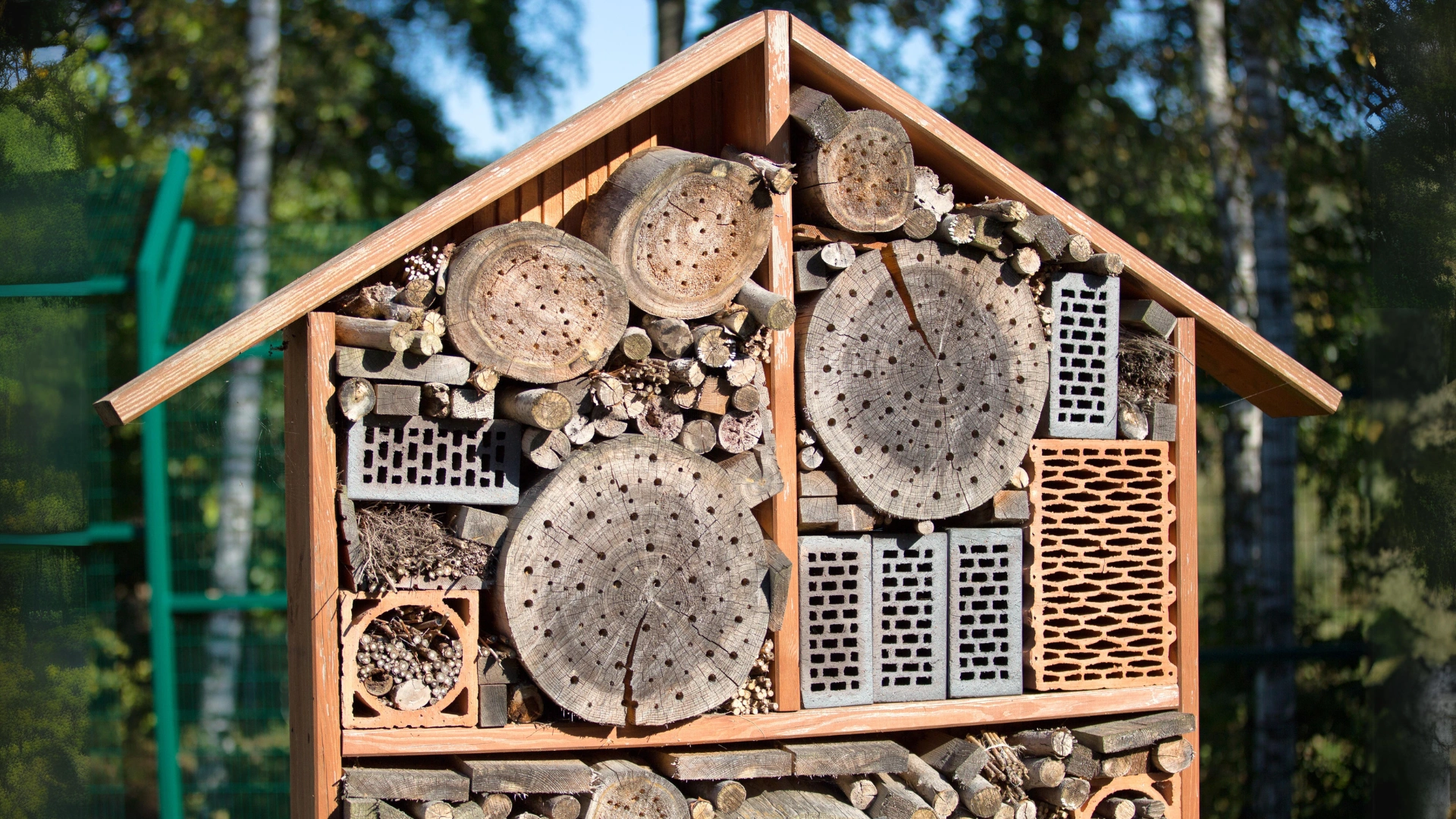Introduction to Bugs Hotels: a safe haven for Biodiversity.
In an increasingly urbanized and industrialized world, what makes a company truly sustainable is conceiving biodiversity conservation a key priority. Practices that promote the preservation of local ecosystems include Bugs Hotels, structures designed to provide shelter and habitat for a variety of beneficial insects; these small refuges play a crucial role in maintaining biodiversity by supporting pollinators, pest predators, and other species that contribute to ecosystem health.
The importance of Bugs Hotels in Biodiversity Conservation.
Bugs Hotels are artificial structures made of natural materials such as wood, bamboo canes, perforated bricks and dried leaves, designed to replicate the natural microhabitats in which many insects live. These refuges provide a safe nesting and resting environment for a variety of species, including solitary bees, ladybugs, chrysopids and many others. Insects play a crucial role in ecological cycles: solitary bees, for example, are important pollinators for many flowering plants and agricultural crops, while ladybugs and chrysopids are natural predators of pests that damage crops.
The installation of Bugs Hotel, therefore, helps to counter habitat loss caused by phenomena such as urbanization and intensive agriculture by providing safe havens in areas where natural habitats have been reduced or fragmented. In addition, these refuges help maintain and increase populations of beneficial insects, improving the health and resilience of local ecosystems.
The role of companies and logistics in safeguarding Biodiversity.
What, then, can truly sustainable logistics do to preserve Biodiversity? Integrate Bugs Hotels into environmental redevelopment projects in industrial areas, within logistics parks or along transportation routes, contributing to biodiversity protection and showing a real and concrete commitment to ecological and sustainable practices. In addition, one aspect that should be emphasized is that the presence of Bugs Hotel has educational effects, as it raises awareness among employees and the entire local community about the importance held by insects and biodiversity. The installation of these shelters, to be a choice capable of producing environmentally beneficial benefits must be integrated into a business strategy that is as broad and conscious as possible and in which companies:
-
encourage the design of green spaces at their operational sites, planting wildflowers and other native plants that provide food and habitat for insects;
-
implement soil management practices that greatly reduce pesticide use and promote soil health;
-
collaborate with environmental organizations and local communities to promote ecosystem conservation projects and raise awareness of biodiversity protection;
-
foster greater education and awareness of the benefits of promoting sustainable practices by engaging with workshops, informational materials and volunteer programs of their employees and communities.
In 2024, one can be a responsible and environmentally conscious leader if one uses a holistic approach to sustainability, reducing one’s environmental impact and contributing significantly to protecting the health of the planet. In conclusion, Bugs Hotels, besides being an undisputed symbol of ecological commitment, represent that concrete step toward a more sustainable world that will be delivered into the hands of future generations.










